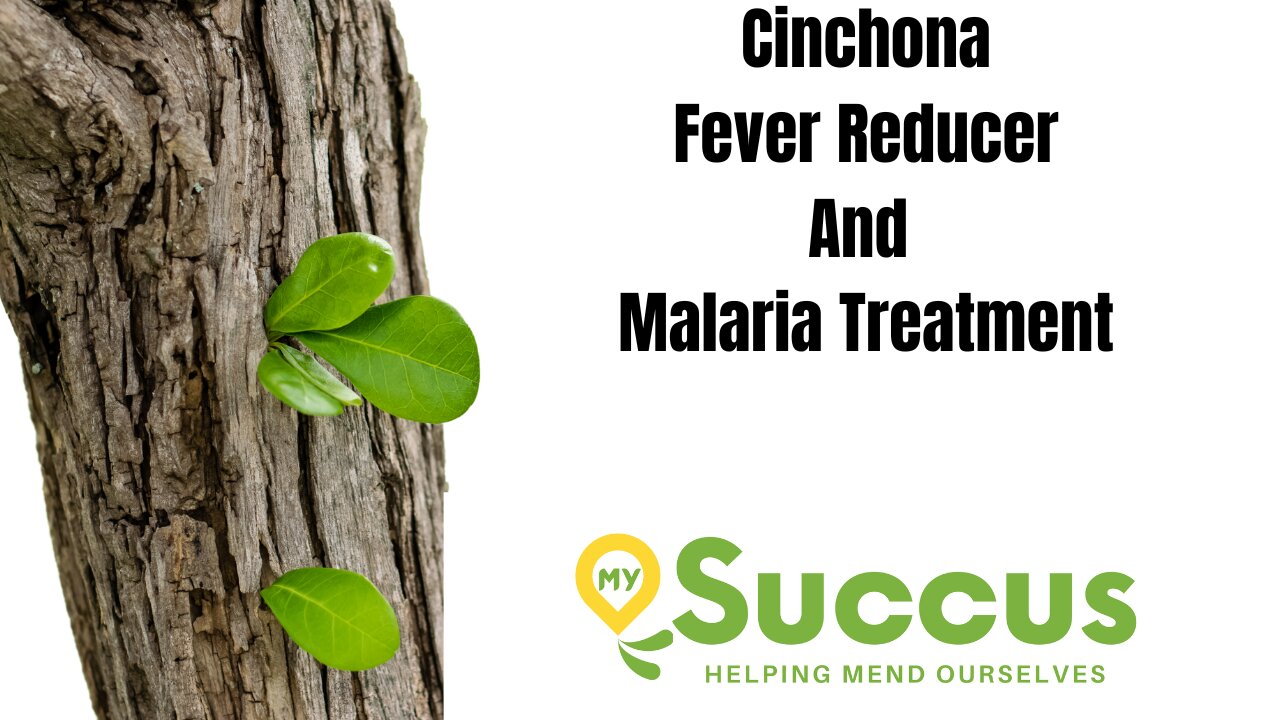Premium Only Content

Cinchona- Fever Reducer and Malaria Treatment
Cinchona is both antimalarial and antibacterial. Like the other alkaloids, it is antispasmodic. The bitter constituents in cinchona, including the alkaloids and quinovin, produce a reflex stimulation of the digestion as a whole, increasing stomach secretions. It is known to reduce heart rate and improve irregularity of heartbeat. The indigenous people of Peru have taken cinchona for many centuries, and it is still a widely used remedy for fevers, digestive problems, and infections. It is also used to treat other feverish conditions. As a bitter tonic, cinchona stimulates saliva, digestive secretions, and the appetite, as well as improves weak digestive function. Apart from that, Cinchona is useful as a gargle for sore, infected throats. The herb is used in herbal medicine for cramps, especially night cramps. This remedy also relieves arthritis pain. In India, cinchona is used to treat sciatica and dysentery. It has long been used by native people in the treatment of fever and malaria carried by mosquitoes. Bark is also used in the treatment of neuralgia, muscle cramps and cardiac fibrillation. Modern research has shown it to be a very effective treatment for fevers, and especially as a treatment and preventative for malaria. Bark is a bitter, astringent, tonic herb that helps lower fevers, relaxes spasms, is antimalarial due to the alkaloid quinine, and slows the heart due to the alkaloid quinidine. It is an ingredient in various proprietary cold and influenza remedies. The liquid extract is useful as a cure for drunkenness. It is also used to treat sore throats. The traditional way of preparing the medicine was to grind the dried bark into a powder, boiling in water and then either drinking it as tea or mixing it with wine or other alcohol. There are suggested dosages given in several herbalist reference books. It should be stressed that the alkaloids contained in cinchona bark are powerful drugs and thus no one should self-administer a cinchona decoction without consulting a medical doctor. Tonic water, which consists of a much lower concentration of quinine than what is recommended for malaria treatment, is considered safe. Care must be taken in the use of this herb since excess can cause a number of side effects including cinchonism, headache, rash, abdominal pain, deafness and blindness. The herb, especially in the form of the extracted alkaloid quinine, is subject to legal restrictions in some countries. Large and too constant doses must be avoided, as they produce headaches, giddiness and deafness.
-
 2:18:29
2:18:29
Badlands Media
13 hours agoDevolution Power Hour Ep. 376: Optics, Explosions & the War for the Narrative
138K37 -
 37:46
37:46
Stephen Gardner
11 hours ago🔥Trump NEVER expected THIS WIN as Schumer has EPIC MELTDOWN!
39.2K37 -
 2:02:41
2:02:41
Inverted World Live
7 hours agoNASA Engineer Says Trillions of Shape-Shifting, Cloaked Devices are Hidden on Earth| Ep. 83
33.4K10 -
 3:12:37
3:12:37
TimcastIRL
7 hours agoGOP Councilman DOUSED IN GAS, Set ON FIRE In Virginia, Suspect In Custody | Timcast IRL
244K88 -
 2:32:23
2:32:23
The Quartering
7 hours agoOn To The Big Bosses! Act 2 Of Expedition 33
60.5K6 -
 7:36:34
7:36:34
SpartakusLIVE
9 hours agoTiger Blood RESTOCKED and 30% off w/ code SPARTAKUS30
85.5K -
 24:58
24:58
Law&Crime
10 hours ago $3.24 earnedSecond Note Leaves Disturbing Clues in New York City Killings
38.9K12 -
 1:36:57
1:36:57
Badlands Media
1 day agoAltered State S3 Ep. 39: Earthquakes, Energy Games & the Fall of the Narrative
76.1K16 -
 2:04:07
2:04:07
Due Dissidence
15 hours agoCharlie Kirk's GAZA LIES, Caitlin Clark Stalker, Palantir Goes Hollywood - w/ Kyle Matovcik | TMWS
41.3K10 -
 2:54:43
2:54:43
I_Came_With_Fire_Podcast
16 hours agoAmerica First, Trump Threatens China, Your Friendly Neighborhood Illegal, EPA Gets a "W"
39.6K15